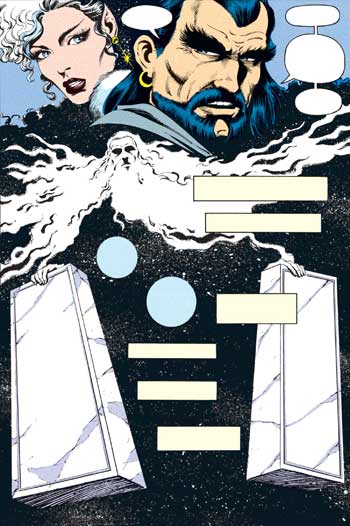But it is how the English language works, and I can delve into the grammar if you'd like -- it is the same difference between the following two statements:
- Bob gets along with my students that come from Europe.
- Alice gets along my students, who come from Europe.
(1) is a restrictive clause (a.k.a. defining clause), and in that sentence, I have many students, only some of which come from Europe. The sentence tells us that Bob gets along with the subgroup that does come from Europe and offers no information on other students except that they exist. (2) is a nonrestrictive clause, and it just explains that my students (all of them) come from Europe. In that scenario, Alice gets along with all my students.
English inherited this feature from its Latin/French influences and it shares it with other European languages. You can read the grammar
here,
here (Oxford) or
here (Wikipedia), as well as in any other grammar manual of your choice.
"Bahamut and Tiamat are ontologically different from the gods that hail from the Outer Planes" is clearly an example of (1), a restrictive clause. The lack of comma communicates that, and the use of "
that" confirms it.
No, that is not what it is doing. It is telling you that they are different from the gods
that come from the Outer Planes, which are, again, not all the gods (and we have plenty of evidence for that; evidence that you've thus far simply not addressed).
The planar origins of dragons are very important to the metaphysics of
Fizban's, which are all about how dragons are intrinsically tied to the Material Plane in a way that other creatures aren't. This does not diminish the divinity of Bahamut and Tiamat.
The book
does call Bahamut and Tiamat gods! Multiple times! And there is no mutual exclusivity to a primordial dragon and a god, or a dragon god. This isn't a tag of creature type on a statblock.
And we have other examples of gods who are also other things. Tharizdûn, for example, is both god and an elder evil--the fact that a paragraph refers to him as an elder evil does not render him less of a god. The same applies to Bahamut and Tiamat.
I agree that it is unlikely we will see eye to eye on this; I was simply responding to your assertion on the prior page, among other responses about mortal greatwyrms. I also agree that it is better to return to the topic at hand (the book, or at the very least, Ashardalon) before we derail the thread.



